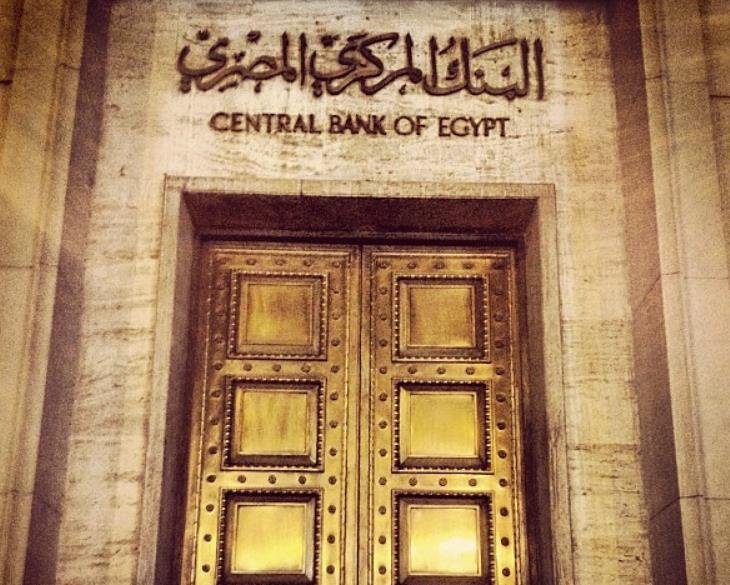Egypt’s Central Bank is set to auction $1.5 billion in one-year Treasury bills on Monday, November 11, as part of its ongoing efforts to manage the country’s fiscal landscape and refinance maturing debt.
The upcoming auction will see the issuance of new one-year T-bills intended to replace the $1.6 billion in maturing securities that carried an average yield of 5.149%. This strategic move ensures continuity in Egypt’s short-term borrowing needs and supports the country’s liquidity management.
“The replacement of maturing T-bills with new issuances is a standard practice to maintain market stability and investor confidence,” a Central Bank official stated. By refinancing the existing debt, the Central Bank aims to sustain favorable borrowing conditions and mitigate potential liquidity gaps.
- Amount: $1.5 billion
- Maturity: One year
- Auction Date: Monday, November 11
- Average Yield of Previous T-Bills: 5.149%
- Purpose: Replacement of maturing T-bills and liquidity management
This refinancing strategy is crucial for Egypt as it navigates through economic challenges, including inflationary pressures and external debt obligations.
Impact on Egypt’s Financial Markets
The Central Bank’s decision to auction $1.5 billion in T-bills reflects its proactive stance in managing the country’s debt portfolio. By maintaining a steady flow of short-term debt instruments, Egypt aims to stabilize its financial markets and reassure both domestic and international investors.

Market Reactions and Investor Sentiment
Investor confidence remains a critical factor in Egypt’s economic recovery. The successful auction of these T-bills is anticipated to bolster trust in the country’s fiscal policies and debt management strategies. Analysts suggest that steady demand for these securities indicates a positive outlook among investors regarding Egypt’s economic stability.
“Consistent issuance and management of T-bills demonstrate the Central Bank’s commitment to maintaining fiscal discipline and market confidence,” said Fatima El-Sayed, a financial analyst at Cairo Capital. “This move is likely to attract more investors seeking stable returns in a relatively high-yield environment.”
Yield Considerations
The average yield of 5.149% on the maturing T-bills sets a benchmark for the new auction. Given the current economic conditions, including rising inflation and currency fluctuations, the Central Bank may adjust the yields to remain competitive and attractive to investors.
“Adjusting yields in response to market conditions is essential for ensuring that our debt instruments remain appealing,” the Central Bank official added. “We aim to balance the cost of borrowing with the need to attract sufficient investor interest.”
Broader Economic Context
Egypt’s economy has been under significant pressure, grappling with high inflation rates, a depreciating currency, and substantial external debt. The International Monetary Fund (IMF) has been actively involved in providing financial support and policy guidance to help stabilize the economy.
Inflation and Currency Challenges
Inflation remains a pressing issue, eroding purchasing power and increasing the cost of living for Egyptians. The Central Bank’s measures to manage debt and maintain liquidity are part of a broader strategy to control inflation and support economic growth.
The Egyptian pound has experienced volatility, impacting import costs and overall economic stability. By effectively managing short-term debt obligations, the Central Bank seeks to mitigate the adverse effects of currency fluctuations and maintain investor confidence.
External Debt and IMF Support
Egypt’s external debt has been a significant concern, with the country relying on international loans and support from the IMF to fund its development projects and stabilize its economy. The management of short-term debt instruments like T-bills is crucial in ensuring that Egypt meets its repayment obligations without exacerbating its debt burden.
“The Central Bank’s prudent management of T-bills is a testament to our commitment to fiscal responsibility and economic stability,” an IMF spokesperson commented. “These measures are essential for Egypt’s ongoing economic reforms and long-term sustainability.”
Future Outlook and Strategic Plans
Looking ahead, Egypt’s Central Bank is expected to continue its efforts in refining debt management strategies and enhancing fiscal policies. The successful auction of $1.5 billion in T-bills will likely pave the way for future issuances, contributing to a more resilient and robust financial system.
Strategic Initiatives:
- Diversifying Debt Portfolio: Exploring a mix of short-term and long-term debt instruments to optimize borrowing costs and manage risks.
- Enhancing Investor Relations: Strengthening communication and transparency with investors to build trust and encourage sustained investment.
- Implementing Economic Reforms: Continuing structural reforms aimed at improving economic efficiency, reducing fiscal deficits, and fostering sustainable growth.
These initiatives underscore Egypt’s determination to overcome economic challenges and achieve financial stability. By maintaining a balanced approach to debt management and economic policies, the country aims to secure a prosperous future for its citizens.
The Central Bank of Egypt’s decision to auction $1.5 billion in one-year T-bills is a strategic move aimed at managing maturing debt and ensuring liquidity in the financial markets. This initiative reflects the country’s ongoing efforts to stabilize its economy amidst inflationary pressures and external debt challenges. As Egypt continues to navigate its economic landscape, effective debt management and investor confidence will remain pivotal in achieving long-term fiscal sustainability and growth.
